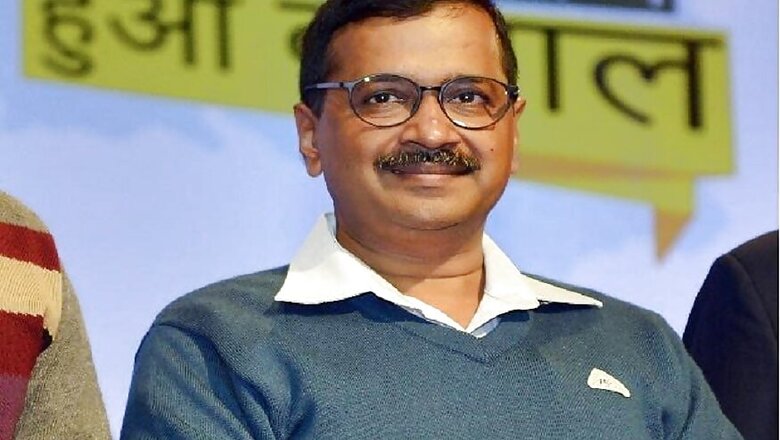
views
New Delhi: The decision of Delhi Chief Minister Arvind Kejriwal — who has time and again clashed with the Centre over the issue of statehood for the Capital — to support the government's move to repeal articles 370 and 35A and bifurcate Jammu and Kashmir didn't surprise many within the Aam Aadmi Party.
Kejriwal wrote on Twitter, "We support the govt on its decisions on J&K. We hope this will bring peace and development in the state". This, a source close to the chief minister told News18.com, underlined a longstanding conflict within the party over what line to take on the Kashmir issue. The source said, "There are those within the party who have felt, especially ahead of the 2014 elections, that the party should take a clearer stand on Kashmir and on the issue of Left-Wing Extremism. However, the party leadership had decided after polls to take a softer approach that aligned with the Centre."
This ideological disagreement, the source added, was also a factor that eventually led to one of the first splits in the party when advocate Prashant Bhushan and Yogendra Yadav left the AAP.
In an announcement with massive repercussions for Jammu and Kashmir, Home Minister Amit Shah told the Rajya Sabha that the government had decided to repeal Article 370 of the Constitution which grants special status to J&K. The government has also decided to bifurcate the state into two Union territories — Jammu and Kashmir, which will have a legislature, and Ladakh, which will be without a legislature.
In February, Kejriwal had flown to Puducherry in a show of solidarity with Chief Minister V Narayanasamy who had been protesting outside the Raj Niwas against the “undemocratic acts and ways of functioning” of Lieutenant Governor Kiran Bedi that led to the stalling of key decisions by the elected government and “blocking crucial files”.
Asked about why a similar show of solidarity wasn't being shown for Jammu and Kashmir, an AAP leader, who didn't wish to be named, said: "There are elections in Delhi. This is an issue that is linked to the rise of nationalism in the country and Delhi isn't immune to it. By attacking Modi over this move, AAP will effectively ensure that it has no chance in the state elections."
Meanwhile, others in the party said it was the view of the chief minister and not the party that had changed.
A source maintained, “The party’s view on Kashmir has not changed. The Aam Aadmi Party has always been in favour of development in J&K as opposed to the cycle of violence.”
In 2014, the AAP manifesto for the Lok Sabha polls read, “We believe that Kashmir is an integral part of India, and there would be zero-tolerance towards cross-border terrorism. In addition to short-term use of security forces, AAP believes in a long-term approach of decentralisation and devolution of power, which would give people of Kashmir the ability to make decisions for their own development.”
In 2014, while facing fire for then party leader Prashant Bhushan’s call for a referendum on deployment of the Army in Jammu and Kashmir, the party had distanced itself from the suggestion and asserted that “Kashmir is an integral part of India”.
Kejriwal, while stating that Bhushan’s views were personal, said: “Deployment of the Army within the country should be on the basis of internal security threat. There is no question of a referendum on this. But we believe the sentiments of locals should be respected. Otherwise, democracy will be under threat.”
Apart from Kejriwal, the BJD, YSRCP, BSP, AIADMK, Shiv Sena and BPF (Assam) have supported the Centre's resolution on Article 370. BJD MP Prasanna Acharya in Rajya Sabha said, "In real sense today, Jammu & Kashmir has become a part of India. My party supports this resolution. We are a regional party but for us nation is first."
Shah’s announcement was immediately followed by massive uproar in the Upper House with opposition MPs protesting in the Well of the House. Back in the Valley, three of Jammu and Kashmir's most prominent politicians — Mehbooba Mufti, Omar Abdullah and Sajad Lone — are under house arrest amid a massive security-build up in the state. Internet and mobile services have been suspended in several places and all public gatherings are banned in Srinagar district as Section 144 was imposed from midnight.




















Comments
0 comment